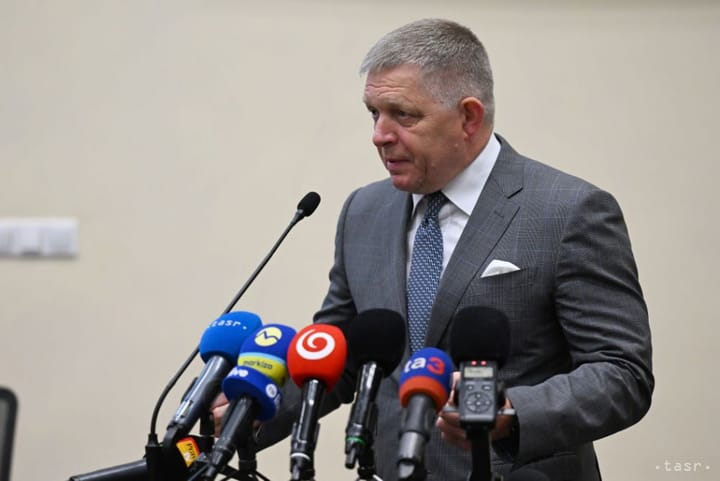House Overrides Caputova's Veto and Extends Moratorium

Bratislava, November 26 (TASR) – The ban on publishing pre-election polls will be extended from the current 14 days to 50, as Parliament overrode the veto by President Zuzana Caputova and passed the bill the second time on Tuesday.
The legislation will apply already to the next year’s parliamentary election in February.
President Caputova vetoed the bill, as she believes that it flies in the face of the right to information and right to assemble and disseminate information. She also declared her readiness to challenge the bill in Constitutional Court, if passed by Parliament again.
According to the bill submitters, public opinion polls are often influenced by political parties. Similar polls, even conducted in the same period, often post significantly different figures, which leave voters confused. “We hold the view that the bill doesn’t restrict the voters’ right to information but, on the contrary, it’s an effort to protect voters from disinformation and tendentious information,” claim the submitters.
If President Zuzana Caputova challenges the extended moratorium on public opinion polls in the Constitutional Court, it would be her failure to grasp political reality, Smer-SD chair Robert Fico stated after the vote.
Fico pointed out that 80 lawmakers [out of 150] lent their support to overriding the president’s veto. “Ms. President, of course, has the license to reach out to the Constitutional Court, but that would be a failure to appreciate political reality,” maintains Fico, adding that he finds the bill justified also by recent public polling results. If the President attacks the legislation in the Constitutional Court, it would mean that she is clearly engaging in opposition politics.
When a journalist asked Fico what he would say to Prime Minister Peter Pellegrini (Smer-SD) and chief of Slovak diplomacy Miroslav Lajcak (a Smer-SD nominee), who had both criticised the extended moratorium, Fico replied: “These bills were submitted by MPs; they were lawmaker bills. I’ve never rejected and will not reject other views. But the reality is that the bill passed through both first and second readings, and also passed against the veto by the president, with 80 votes.”
The extended moratorium is praised also by coalition’s MP Eva Antosova (Slovak National Party/SNS). “It’s necessary to try this out. We’ll see whether people have enough time to vote in line with their conscience and common sense, instead of under dictation from the media,” she stated. Antosova believes that media tend to mislead people with untrue information and then voters make their choice at the ballot box based on fake news.
Coalition’s Most-Hid caucus chair Tibor Bastrnak declared that he had voted in favour of President Caputova’s objections. “When that didn’t pass, we voted against the bill. We did this also in the previous votes – we had informed our coalition partners beforehand that it wasn’t a good idea to extend the moratorium,” he said.
Later in the day, President Zuzana Caputova confirmed, indeed, that she will file a proposal with the Constitutional Court without delay to examine the constitutionality of the bill.
The passing of the bill didn’t sit well with opposition either, which perceives the extended moratorium as the return of censorship and voiced concerns that the Constitutional Court might not manage to reach a verdict in time to interfere before the 2020 election in February.
“We believe that the bill won’t really resolve the problem they claim to address, as polls might still be released, for instance, in the Czech Republic or Hungary,” stated We Are Family caucus chair Peter Pcolinsky, who thus finds the ban senseless and in breach of the right to information.
OLaNO leader Igor Matovic believes that despite the new legislation, various estimates will still be floated around Slovakia before the election, but no longer any official polls. “When we look at who voted for this bill, it’s all people mentally stuck in communism or somewhere in fascism. These totalitarian regimes had a tendency to ban people from thinking; ban them from receiving information.”
“Thirty years since abolishing censorship, it has crept back into Slovakia,” claimed Parliamentary Vice-chair Martin Klus (SaS), who views the introduction of 50-day moratorium only three months away from the election “extremely bad news for freedom and democracy in Slovakia”. Klus pointed out that the bill was repeatedly passed by Smer-SD, SNS and far-right LSNS.
“Parties of the governing coalition are concerned by their decreasing polls and don’t want people to find out before the election,” claimed non-parliamentary For People party vice-chair Veronika Remisova.
A similar opinion is held also by non-parliamentary coalition of Progressive Slovakia-Together. “Now it’s the Constitutional Court’s turn. Most important, however, is the power of people, whom we must mobilise to defeat the brown coalition in the election three months down the road,” reads the press release of the parties.



